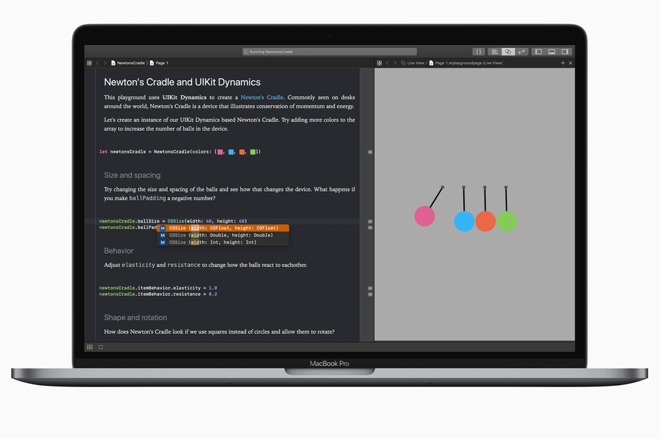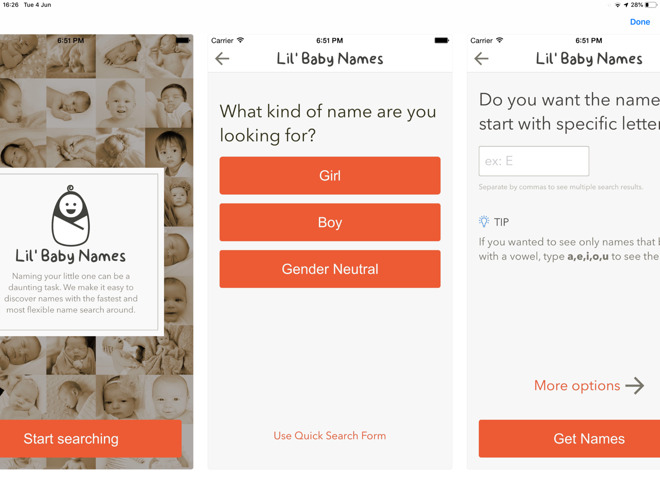Developers sue Apple over $99 annual fee, mandatory pricing increments of $0.99
Two iOS developers have filed a class-action suit claiming that Apple abuses its position as the owner of the App Store by dictating pricing tiers, and that its mandatory annual fee for all developers is "profit-killing."

A group of iOS developers have filed a class action suit against Apple, arguing that the company "knowingly used its monopoly" to charge a "profit-killing" fee for developers who want to make apps. The suit, filed in the US District Court for the Northern District of California, claims that Apple is in violation of the Sherman Act and California's Unfair Competition Law. It seeks trial by jury and for Apple to be required to reimburse developers.
The attorneys representing the plaintiffs, Hagens Berman, previously won a 2016 suit against Apple and other book publishing firms over alleged price-fixing.
"This isn't the first time we've taken Apple to task over anticompetitive behavior," said Steve Berman, managing partner of Hagens Berman. "We have successfully held Apple to the law in the past, and we intend to fight hard for the rights of iOS developers who bring their hard work and creativity to the iOS App Store with the hope of fairly monetizing their creations."
"Between Apple's 30 percent cut of all App Store sales, the annual fee of $99 and pricing mandates, Apple blatantly abuses its market power to the detriment of developers, who are forced to use the only platform available to them to sell their iOS app," he continued. "In a competitive landscape, this simply would not happen."
Central to the case is an argument that Apple has an unfair monopoly on what apps can be used on its devices and that the company's claims this is is for security reasons is "overblown pretense" designed to keep people paying its fees. "There is no reason to believe that other reputable vendors, including Amazon, for example, could not host an app store and provide a trustworthy app-distribution system if Apple were to open up its system to other providers," claims the suit.
Hagens Berman is also involved in a 2018 case accusing Apple of intentionally slowing down iPhones.

App Store screenshots from Lil' Baby Names, an app by one of the plaintiffs
While the suit intends to represent all developers who have been charged by Apple, it is specifically brought by two plaintiffs. Donald R. Cameron of California, is co-developer of an app that helps you name your baby.
"Throughout its availability in the App Store, Mr. Cameron has priced his app at $2.99," says the suit. "If, however, Mr. Cameron could have priced his app at above zero but below $.99, he might well have done so, in order to attempt to capture volume sales."
The second plaintiff is an Illinois company named Pure Sweat Basketball, which produces a workout app. "[As] Pure Sweat Basketball charges a monthly subscription of $4.99, Pure Sweat Basketball has paid Apple's 30% commission on each sale," continues the suit.
Apple has not yet commented on the suit. The suit is case 5:19-cv-03074, and was filed in the Northern district of California on Tuesday.

A group of iOS developers have filed a class action suit against Apple, arguing that the company "knowingly used its monopoly" to charge a "profit-killing" fee for developers who want to make apps. The suit, filed in the US District Court for the Northern District of California, claims that Apple is in violation of the Sherman Act and California's Unfair Competition Law. It seeks trial by jury and for Apple to be required to reimburse developers.
The attorneys representing the plaintiffs, Hagens Berman, previously won a 2016 suit against Apple and other book publishing firms over alleged price-fixing.
"This isn't the first time we've taken Apple to task over anticompetitive behavior," said Steve Berman, managing partner of Hagens Berman. "We have successfully held Apple to the law in the past, and we intend to fight hard for the rights of iOS developers who bring their hard work and creativity to the iOS App Store with the hope of fairly monetizing their creations."
"Between Apple's 30 percent cut of all App Store sales, the annual fee of $99 and pricing mandates, Apple blatantly abuses its market power to the detriment of developers, who are forced to use the only platform available to them to sell their iOS app," he continued. "In a competitive landscape, this simply would not happen."
Central to the case is an argument that Apple has an unfair monopoly on what apps can be used on its devices and that the company's claims this is is for security reasons is "overblown pretense" designed to keep people paying its fees. "There is no reason to believe that other reputable vendors, including Amazon, for example, could not host an app store and provide a trustworthy app-distribution system if Apple were to open up its system to other providers," claims the suit.
Hagens Berman is also involved in a 2018 case accusing Apple of intentionally slowing down iPhones.

App Store screenshots from Lil' Baby Names, an app by one of the plaintiffs
While the suit intends to represent all developers who have been charged by Apple, it is specifically brought by two plaintiffs. Donald R. Cameron of California, is co-developer of an app that helps you name your baby.
"Throughout its availability in the App Store, Mr. Cameron has priced his app at $2.99," says the suit. "If, however, Mr. Cameron could have priced his app at above zero but below $.99, he might well have done so, in order to attempt to capture volume sales."
The second plaintiff is an Illinois company named Pure Sweat Basketball, which produces a workout app. "[As] Pure Sweat Basketball charges a monthly subscription of $4.99, Pure Sweat Basketball has paid Apple's 30% commission on each sale," continues the suit.
Apple has not yet commented on the suit. The suit is case 5:19-cv-03074, and was filed in the Northern district of California on Tuesday.

Comments
- o yeah you have to built a website ($$) were the product can be purchased from.
- or you put your product into a self developed packaging ($$) and then develop relationships to resellers ($$) and make them want to display your product ($$$)
In short, in no way a 1 man developer could have had the resources to distribute an App on his own before the App Store came along. It worked and it still works.
It’s so laughable that it’s not even worth commenting in further.
The plaintiffs are classic examples of participation trophy recipients.
Most traditional retailers look for a 40% gross margin over the year. Then distribution wants a cut. That means manufacturers may only get 30-50% of the retail price.
They are not. That 30% is a bargain compared to what they would be paying of they had to set up their own distribution and fulfillment. As well as their own “app discovery “. Especially when you consider that they’d pay a lot of those expenses every month whether or not they sold any apps if they were doing it themselves.
The 30% is a cost of doing business, and a reasonable cost for all the benefits it gives you.
People who files this sort of suit are ignorant. Ignorant of what it takes to run a business.
You forgot the bandwidth to distribute it and any updates you make. Website needs to be developed like you said and maintained over time. But the bandwidth will kill you on a popular app.
Let me turn this around, "What's $99 to a corporation valued at 1 Trillion dollars?"
If one day this ecosystem is to collapse, it will be mainly thanks to all these 'nuisance' of not willing to pay for this and that, and the regulators trying to poke here and there just for a show. Why can't these developers just go to Android and Google Play Store instead. It's supposedly free there isn't it? But then, wonder if they can make any decent profit there.
The 30% isn't out of profit. it's off the list price. All a developer has to do is raise the price a bit. Is someone not going to buy an app because it's $4 instead of $3 or $18 instead of $14? Believing you can have a viable business model selling applications for less than what a Starbucks coffee costs is ridiculous. It's amazing that it worked for anyone at all. And let's not forget that the 30% includes all the credit card fulfillment fees and the risk. If Apple cut the fee for small developers to 20%, it wouldn't make any difference to most of them. The problem isn't the 30%: the problem is the ubiquity of competitive applications resulting in a cycle where only the top apps continue to sell because those are the ones end-users see on the store (because they're the top sellers) and the fact that most people already have a ton of apps on their phone that they don't use and they don't need any additional. (An exception might be games where players are always looking for something new.)
IMO, the developers complaining don't understand anything about business.
Unfortunately, an idiot judge might cause Apple to lose this case just as they lost the e-book pricing case. But the last thing we need is Apple forced to let users sell apps outside the store that don't go through Apple's technical approval process. Then we'll wind up with all the security issues that Android apps have.
And I agree with Larryjw: if the $99 fee is a burden (when did Apple start charging this - I seem to remember it being free), you're not really in business and how could you afford a phone or iPad to test the apps you just developed on? IIRC, the original version of Inside Macintosh cost more than that and when the iPhone was first released, I probably spent more than $99 on reference books that had information on how to code for it.